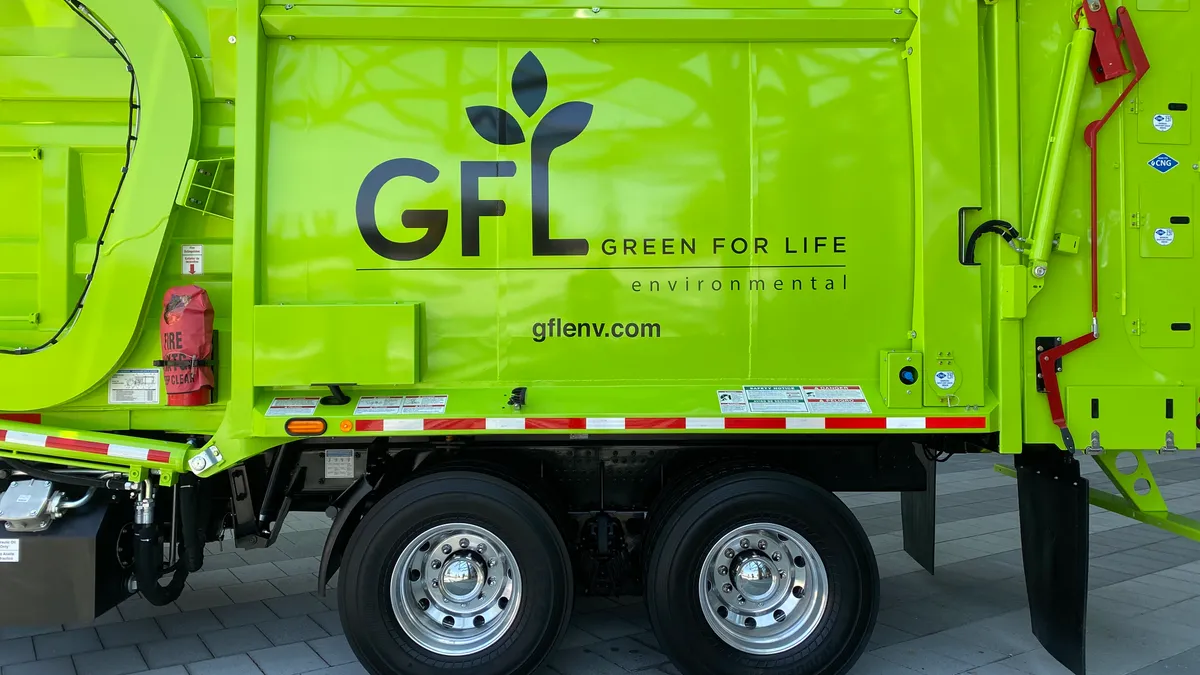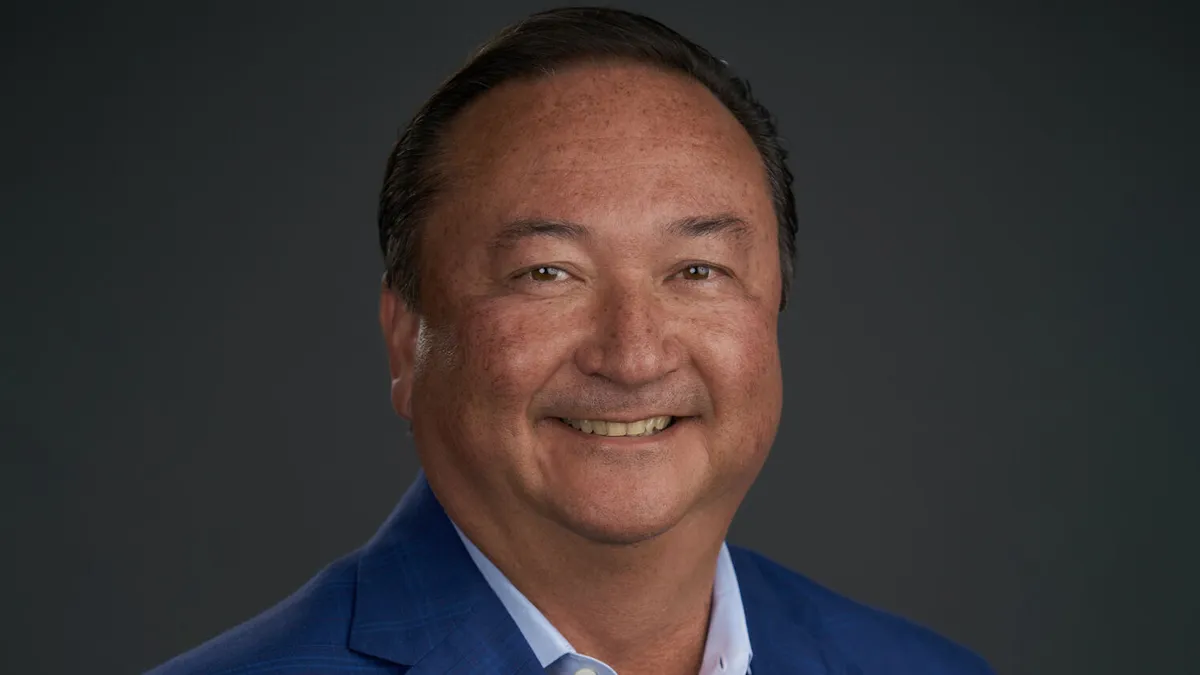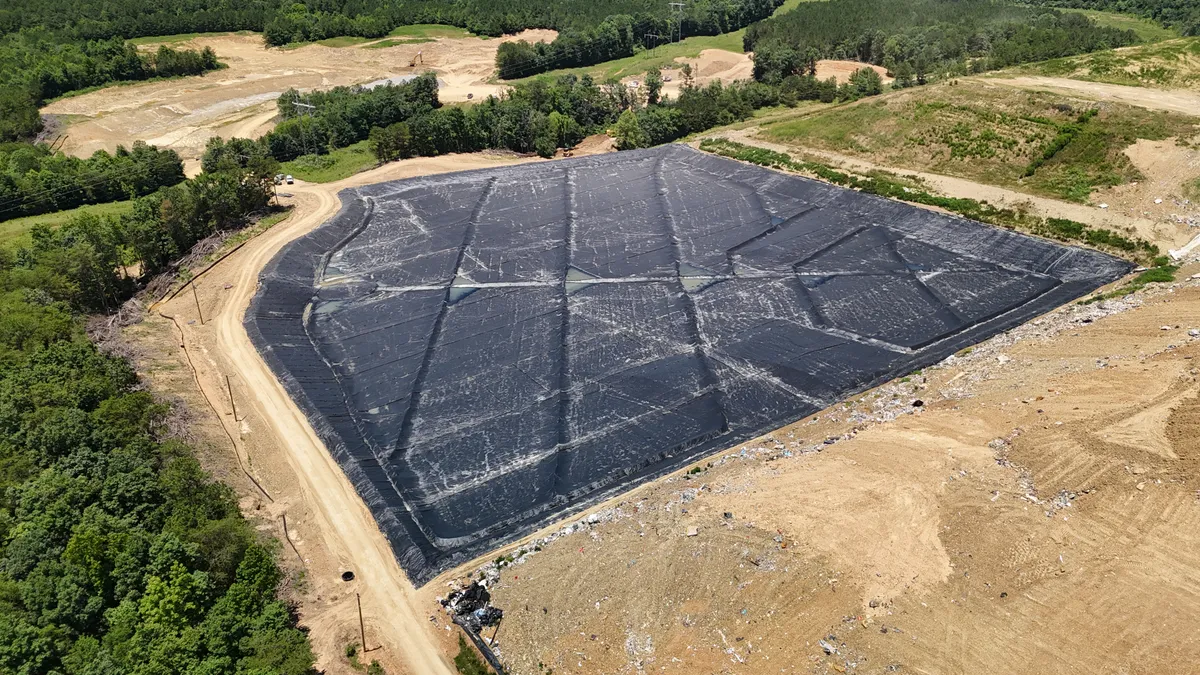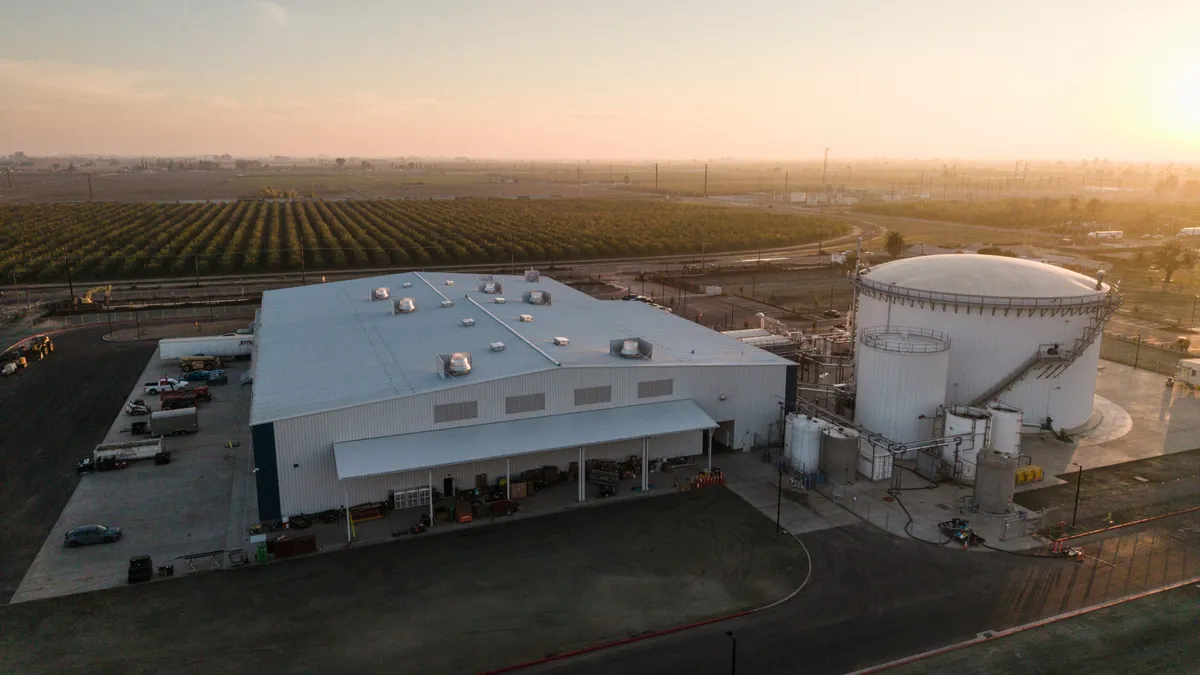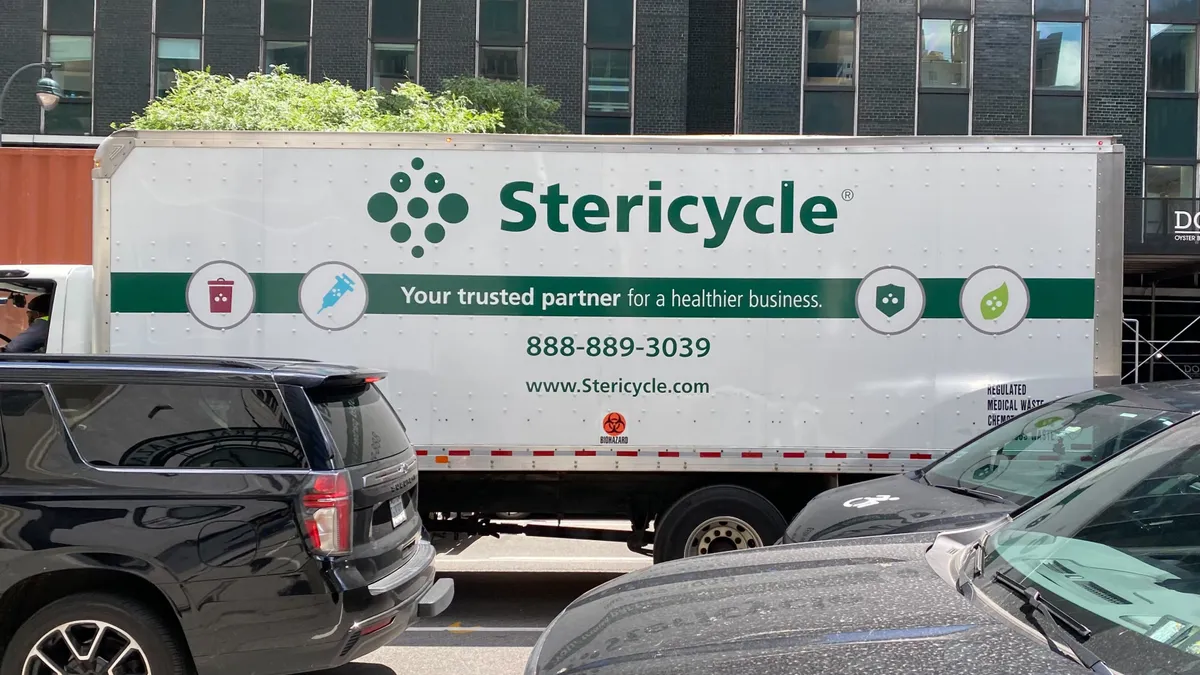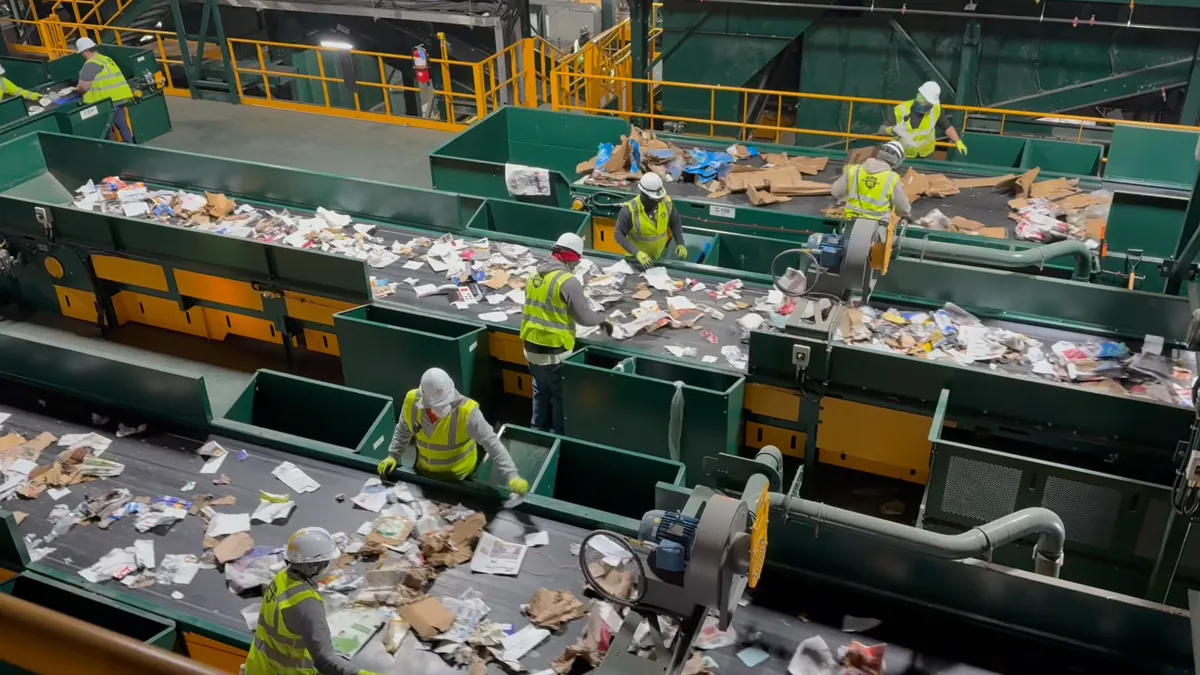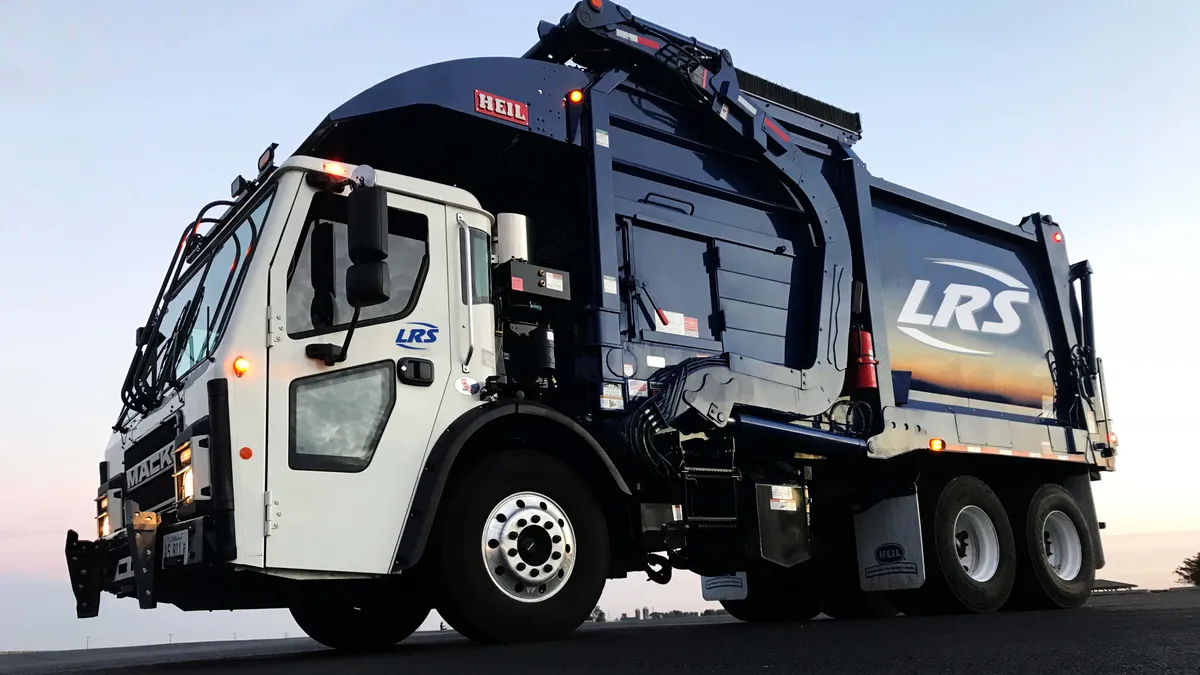GFL Environmental, one of North America’s largest waste companies, has traded below its peers since going public in 2020, due in part to perceptions about the debt it accrued on its path to become an industry heavyweight. As the company’s campaign to address that debt continues, private and public entities may want to buy all or part of the company, according to industry analysts.
GFL received multiple offers to either sell its entire business to a consortium of infrastructure funds and sovereign wealth funds or sell off its environmental services division to an unspecified buyer, financial news outlet CTFN reported Monday. The news kicked off additional reporting from the Globe & Mail and analysis from insiders, leading to GFL CEO Patrick Dovigi addressing the rumors at Stifel's Cross Sector Insight Conference on Tuesday.
GFL declined a request for comment from Waste Dive on the reports.
Publicly traded Clean Harbors also left the door open to a bid during a conversation with, Michael Hoffman an outgoing managing director at Stifel, during the event. Hoffman noted that GFL’s environmental services division is the top containerized industrial liquids business, and Clean Harbors has about $700 million in revenue from Canadian operations, making a deal between the two attractive. In response, Clean Harbors CFO Eric Dugas said acquiring GFL’s environmental services business “sounds interesting.”
“They have a nice footprint, some past management that used to be part of our team,” Dugas said. “Never say never.”
GFL's environmental services business, dominated by liquid waste, has long been a boon to the company. Its cross-selling opportunities with traditional solid waste contracts helped GFL early in its Canadian expansion, and netted the company $1.46B (Canadian) in revenue by the end of last year.
At the same time, GFL executives have faced pressure for years to reduce the company's ratio of net debt to earnings before income, taxes, depreciation and amortization. But Dovigi has long pushed back, often arguing that GFL's aggressive acquisition strategy, which added debt, was necessary to build up a robust footprint with economies of scale and cross-selling opportunities.
Last year, GFL ramped up divestiture of some of its assets to focus on geographic areas where it could have a dense footprint and be a market leader. The divestiture campaign yielded nearly $1.65 billion (Canadian) in cash flow for the company in 2023 and made a material difference in lowering its debt leverage, the company reported at the end of the year. The sell-off has continued into this year, as news broke last week that Priority Waste is poised to buy GFL's Detroit-area contracts, worth $150 million in annual revenue.
The strategy does seem to be moving the needle. GFL reported its net leverage ratio had fallen from 5.02x at the end of 2022 to 4.14x at the end of 2023. Earlier this year, the company projected it would end 2024 with a net leverage ratio between 3.65x and 3.85x. For comparison, industry leader WM targets a debt leverage ratio of 2.75x to 3x.
In March, Moody’s opted to keep GFL’s credit rating at B1, noting GFL’s higher-than-expected acquisitions pace for 2023. S&P Global upgraded GFL's credit rating from a B+ to BB- the following month, citing "[e]arnings growth, tempered acquisition spending, and noncore divestitures," that improved the company's credit. GFL also announced a plan on Thursday to offer $500 million in senior notes to address debt due in 2025.
Hoffman said the outcome of the various buyout offers depends on what GFL’s current majority owners want in order to relinquish their stake. British private equity firm BC Partners is the company’s largest stakeholder; it had a controlling stake before GFL went public in 2020.
According to Hoffman, Dovigi said Tuesday that selling off the company’s environmental services division was “more likely” to proceed than the other offers on the table. The analyst said that outcome would be in line with executives’ strategy to lower debt quickly to unlock greater value from public markets.
“They're very focused on getting below 4x leverage at the end of this calendar year,” Hoffman said in an interview. “It's just too slow at this point, I think is the conclusion.”
RBC Capital Markets Analyst Sabahat Khan sent a note to investors on Wednesday rating the recent news as “neutral” for the company’s outlook. He noted that GFL trades below its peers when comparing stock price to projected EBITDA, making it an attractive target to potential buyers bullish on the waste industry. Khan said selling off the environmental services sector “could be interesting,” adding it would likely bring GFL’s leverage to 1.3x if reported numbers are true.
Jefferies analysts also addressed the reports in a note to investors titled, in part, “Where There Is Smoke There Is Fire.” The analysts noted GFL’s history as a private equity-owned firm and its stock price mean “there is a high probability of a transaction” of some kind.
“It’s our view investors have been giving the company little benefit of the doubt. As a reminder, GFL has a longstanding history of PE ownership, including 5 different recaps in its history,” analysts Stephanie Moore and Harold Antor wrote.
This is not the first time GFL has been urged to sell all or part of its business. In November, minority shareholder ADW Capital Management sent a letter to the company's board suggesting it undertake a strategic review. The letter, signed by founder Adam Wyden, argued that GFL's stock is "too cheap" given the business's underlying fundamentals. He said the board should sell the company, merge with another company or dispose of assets to materially bring down GFL’s debt leverage.
"We believe GFL is an extremely valuable company that the public markets are unable to appreciate today and perhaps never will be able to," Wyden wrote.
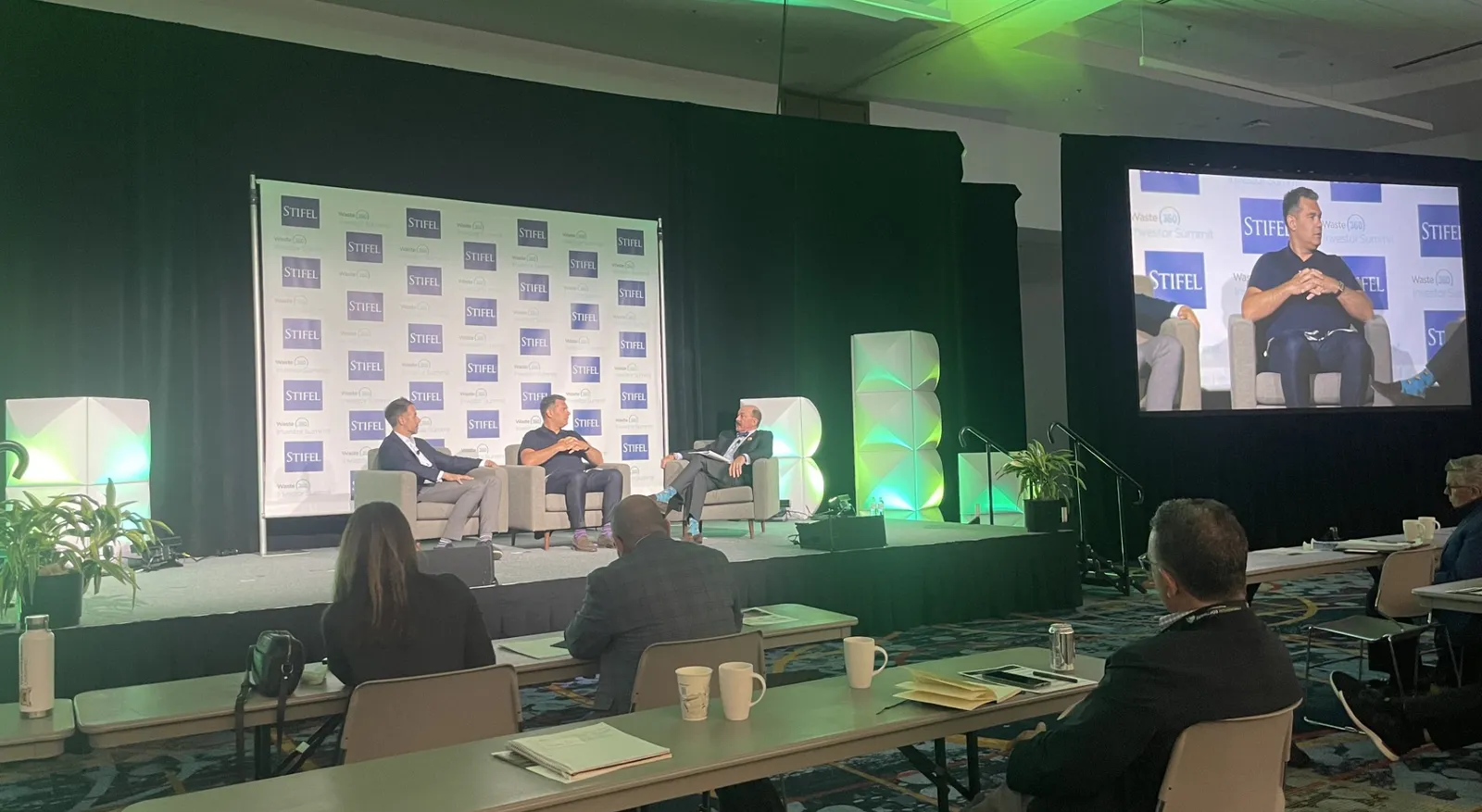
Speaking at another Stifel investor event at the annual WasteExpo on May 6, GFL executives said they're working to optimize their business relative to larger and more established peers, but feel more limited in their ability to do so. Dovigi, in particular, lamented the lack of confidence in the company’s strategy to reduce debt slowly and steadily.
"You can do it faster privately than publicly," Dovigi said. "For anybody thinking about going public — stay private."
Cole Rosengren contributed reporting to this story.
Disclosure: WasteExpo is run by Informa, the owner of Waste Dive’s publisher, Industry Dive. Informa has no influence over Waste Dive’s coverage.



